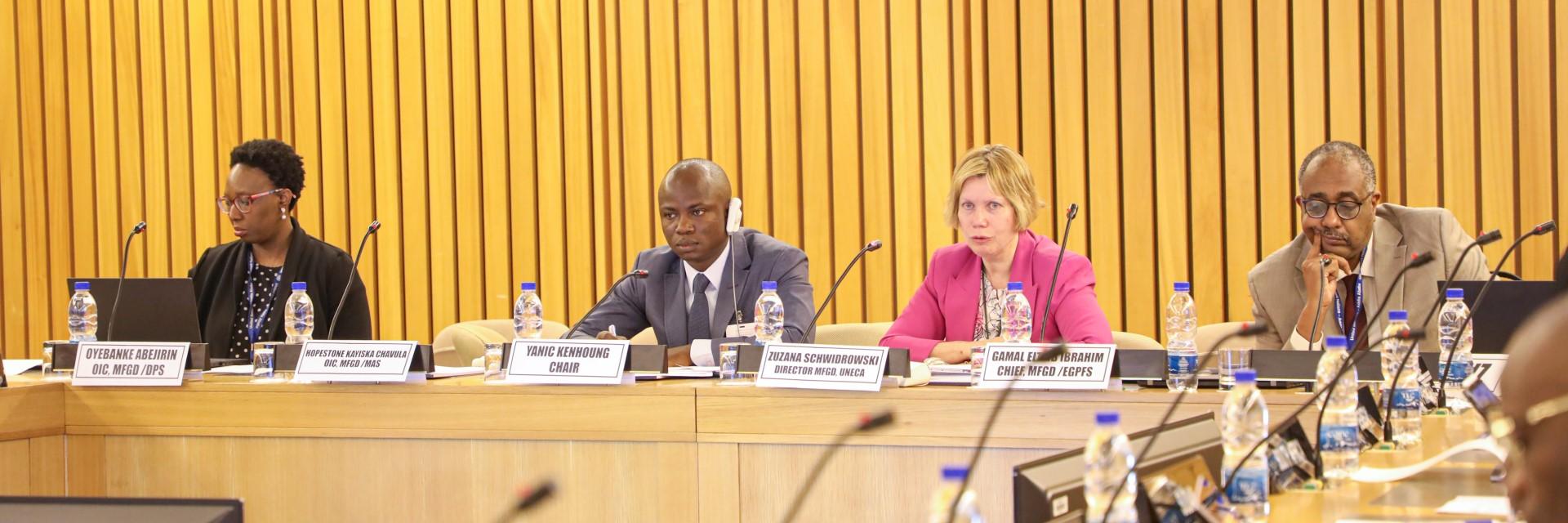Addis Ababa, Ethiopia 17 November 2024 (ECA) - Experts at the Second Session on the Committee on Economic Governance in Addis Ababa, Ethiopia, have called for adjustments to the global financial system to better address Africa’s specific financial needs, including resolving the high public debt burden and ensuring better access of countries to concessional financing.
Continued multifaceted global crisis in coming years, the experts say, “implies a continued need for various fiscal support measures for the continent.”
In her opening remarks at the committee meeting, Zuzana Schwidrowski, ECA Director of the Macroeconomics, Finance & Governance Division said Africa needs to have a unified voice in the global financial governance to address the structural issues and injustices that hinder the continent’s efforts to mobilize adequate financial resources at reasonable cost.
She emphasized the need for Africa to strategize, advocate and engage actively to ensure unique needs are addressed, such as the complex crises Africa is facing, including the impact of the post-COVID-19 pandemic, climate change, geopolitical tensions and conflicts.
The committee meeting is being held ahead of a regional consultation for the Fourth International Conference on Financing for Development to be held on 18-19 November 2024in Addis Ababa, Ethiopia.
The Committee is expected to provide evidence-based advice and guidance on economic governance issues related to the promotion of sound macroeconomic management and inclusive development strategies and the enhancement of global financial integrity issues, such as combating illicit financial flows in Africa and addressing the profit shifting by multinational enterprises. Discussions at the meeting will also help in the preparations towards the Fourth International Conference on Financing for Development set for 30 June to 30 July 2025 in Seville, Spain.
Mr. Yanic Kenhoung, Cameroon representative and outgoing Chair of the Committee’s Bureau noted the need for Africa to raise financial resources to accelerate the implementation of the 2030 Agenda for Sustainable Development and Agenda 2063. “The financing gap between the current status and the targets of the 2030 Agenda is huge and limits opportunities for industrialization in Africa, said Mr. Kenhoung. He noted that for Africa to take charge of its recovery and development aspirations, more needs to be done to bridge the widening financing gap.
In her presentation on Issues and Challenges of Financing for Sustainable Development in Africa: Priorities for Africa for the Fourth International Conference on Financing for Development, to be held in 2025, Ms. Schwidrowski highlighted the worsening situation of Africa’s development with millions of people deprived of basic needs and quality of life.
“At 20 percent of the total population, the share of food insecure people in Africa today is as large as it was in the mid-2000s. On the other hand, at 15.6% of GDP, the unweighted average tax to GDP ratio is the lowest among world regions, with proposals to raise it through digitalizing VAT and introducing property taxation,” she said.
According to Ms. Schwidrowski, at 67% of GDP Africa’s public debt in terms of GDP is the highest in decades and contains much higher share of non-concessional debt than two decades ago. The overall financing gap in Africa is estimated at almost $700-800 billion per year with additional $ 200 billion for climate finance, amounting to a staggering $1 trillion per year.
Furthermore, Africa’s share of global development has declined from 33% to 27% partly due to some countries graduating to middle-income status and increased urgent needs in other regions.
Ms. Schwidrowski emphasized the importance of Africa “advocating consistently to secure its appropriate place in global development aid landscape.”
Public funding, private investment, remittance and borrowing are the other potential sources, with underutilized public-private partnerships and their potential benefits.
The session discussed fair taxation rights and the important role of the political leadership of Africa in ensuring an equitable taxing system for Africa.
Mr. Gamal Ibrahim, Chief, Economic Governance and Public Finance Section Macroeconomics, Finance and Governance Division, ECA, noted the historical inequalities in the international taxation laws, which favor the multinational enterprises at the expense of global south.
“Multinational corporations have manipulated financial growth to minimize tax liabilities through mechanisms like transfer pricing. An inclusive framework was introduced in 2015 aimed to address these issues, but African countries face challenges in capacity and negotiation complexity,” said Mr. Ibrahim.
He stressed the need for capacity building and monitoring, which are crucial for the effective implementation of the UN Framework Convention on International Tax Cooperation – aimed at enhancing the efforts of developing countries to expand their fiscal space. Areas of attention would include provision for fair allocation of tax rights, addressing tax-related illicit financial flows and effective tax information exchange.
He also noted the need for digitalization of tax systems to increase the efficiency of tax administration and increase revenue.
The discussions also called for a special session on debt for climate swaps and green bonds, acknowledging their role as supporting instruments but not a comprehensive solution.
The second session of the Committee elected Egypt as the new Bureau for the period 2024–2026 to review and endorse the work programme of the subprogramme on macroeconomic policy, finance and governance of ECA.
Issued by:
Communications Section
Economic Commission for Africa
PO Box 3001
Addis Ababa
Ethiopia
Tel: +251 11 551 5826
E-mail: eca-info@un.org

